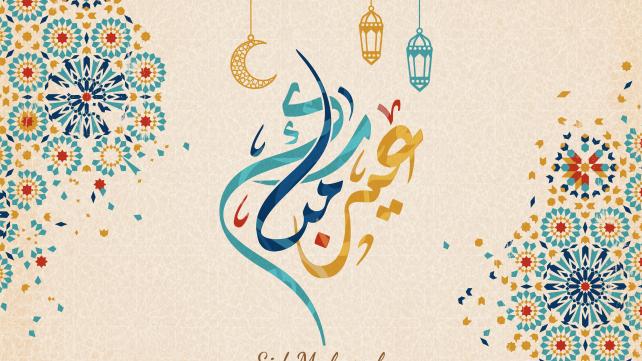
What Is Eid-ul-Adha?
The Muslim celebration of Eid ul-Adha (“Festival of Sacrifice” in English) is one of the most important in the calendar.
The holiday commemorates Prophet Ibrahim's willingness to sacrifice his son when God commanded it. May God’s peace be upon him.
How is Eid-ul-Adha Different from Eid-ul-Fitr?
In Islam there are two festivals in the year. The first one is Eid-ul-Fitr, and the second one is Eid-ul-Adha.
Eid-ul-Fitr is celebrated after completing 30 days of fasting in the month of Ramadan. The month of Ramadan is significant because the Quran began being revealed to Prophet Muhammad, God’s peace and blessings be upon him.
Eid-ul-Adha is celebrated after the first 10 days of the Islamic month of Dhul Hijjah. During these 10 days, millions of Muslims across the world travel to Saudi Arabia for pilgrimage, commonly known as Hajj. The month of Dhul Hijjah is significant because on the 9th day of the month, the revelation of the Qur’an was complete, and the religion of Islam was completely sent down to Humanity.
In the Quran 5:3, Allah says “Today I have perfected your religion for you, and I have completed my blessing upon you, and I have approved Islam as your religion.”
Why Is Eid-ul-Adha Celebrated?
Eid ul-Adha commemorates the period when Prophet Ibrahim had a dream, which was a message from Allah, instructing him to sacrifice his son Ismail, peace be upon Him, as an act of worship. This was to test his obedience to Allah.
Shaytan (the devil) lured Prophet Ibrahim by telling him that if he disobeyed Allah, his son would be spared. When he was going to slaughter his son, Allah instead provided him with a lamb to sacrifice.
By honoring this incident, one is following in Prophet Ibrahim's footsteps, who demonstrated a desire to obey Allah in all things, even if it meant sacrificing his own beloved son.
This celebration teaches us to also feed and assist the poor, and to make everyone happy and joyous on this day.
When is Eid-ul-Adha Celebrated?
Eid-ul-Adha is celebrated in the Month of Dhul Hijjah, which is the 12th and final month in the Islamic calendar. The first 10 days of the month are very sacred. From the 8th to the 12th of the month, Hajj is performed by Muslims from all over the world.
Eid-ul-Adha is celebrated during Hajj, after the 9th of Dhul Hijjah. Hence, Eid is on the 10th day of the month.
This year, Eid will be celebrated on July 20th, as it is the 10th day of the month of Dhul Hijjah.
What is the Islamic Pilgrimage or Hajj?
Hajj is a pilgrimage to specific places in Saudi Arabia. It is the fifth pillar of Islam and the opportunity to fulfill this obligation occurs once a year during the Islamic month of Dhul Hijjah.
Every Muslim who is physically fit and financially capable of travelling should make Hajj at least once in their lives.
Pilgrims perform acts of worship and reaffirm their faith and feeling of purpose in the world during the Hajj. They all praise Allah together in front of the Kaba, one of the most sacred mosques.
How do Muslims celebrate Eid Ul Adha?
Eid is celebrated by starting the day with prayers at the mosque. Muslims dress well, decorate their homes, and prepare good food to enjoy the day.
An animal, usually a lamb, goat, or cow is then sacrificed. The sacrifice can be satisfied by performing one sacrifice per family. Sacrificing an animal is not obligatory, but it's an optionally recommended act.
Meeting neighbors, friends, relatives, and giving gifts is also done on this festive day.
What happens to the meat after the sacrifice has been made?
The meat of the animal is divided into three portions. Each portion goes to the family who is making the sacrifice, relatives, and the poor.



Add new comment